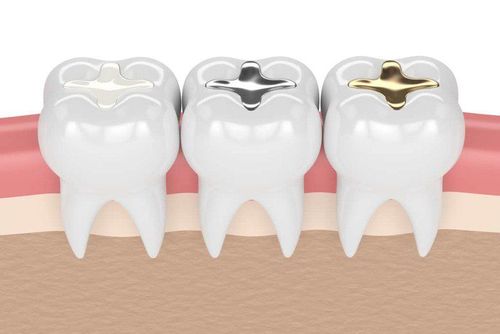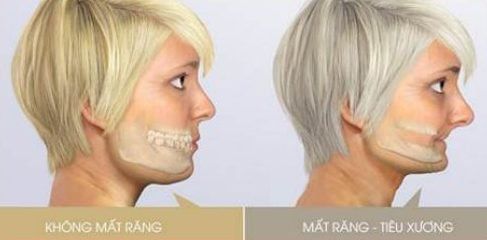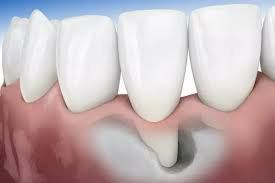This is an automatically translated article.
7 teeth play a very important role in the chewing activity of every human being. However, the extraction of tooth number 7 needs to be replanted is a question of many people today. To answer questions, please read and learn more information through the article below.
1. Which tooth is number 7? What role?
7 teeth take on the main role in chewing. The reason is called tooth number 7 because this is the tooth at the 7th position from the front incisor. For each arch of the upper and lower jaws, there will be 2 7th teeth located on opposite sides of each other.
Normally, the number 7 permanent tooth grows quite late, starting to form when we are 12-13 years old. The main job of the 7th tooth is to chew and crush food before it reaches the stomach.
According to the anatomical results when removing tooth number 7, the upper jaw has 3 legs and the lower jaw has 2 legs. In addition, due to the relatively large tooth structure, they often have 3 or more canals. This is because tooth number 7 usually takes on the main role of chewing, so it needs a large number of roots to maintain the tooth structure, helping the daily chewing process to be faster and more efficient.
2. Is tooth extraction dangerous? Tooth number 7 only grows once in each person, does not grow back when lost, so you need to pay close attention to dental care to keep this important tooth healthy.
The age of eruption of the 7 permanent teeth is when a person is 12 years old, all the baby teeth have been replaced. Each person has 4 teeth number 7, 2 in the upper jaw and 2 in the lower jaw.
7 tooth has a large shape, size and complex structure. Therefore, the risk of tooth extraction no longer depends on the following factors:
When you lose your 7th molar tooth, eating and drinking will become much more difficult, chewing power is weaker, waking food is not thoroughly crushed before being put in the stomach, thereby adversely affecting the digestive system; When tooth number 7 is lost without early restoration, it will lead to jaw bone loss, gum recession; Does tooth extraction at number 7 have sunken cheeks? The answer for you is yes. Losing tooth number 7 will cause your cheeks to be sunken in, facial skin sagging, the skin around your mouth will appear wrinkles, making your face look older than your real age; Once the tooth number 7 is removed, it will create a space on the jaw, the adjacent teeth are at risk of tilting, shifting and even affecting the entire chewing system; Losing the 7th molar also makes the opposing teeth no longer support, thereby creating great pressure on the jaw, aches and pains such as jaw muscle pain, headache, neck and shoulder fatigue... will appear as a result. you are very upset. Bite disturbance: The adjacent teeth tend to be displaced into the missing tooth space, the teeth opposite the missing tooth area will protrude or hang down excessively. In the long run, this will cause bite problems.
3. Does tooth extraction need to be replanted?
With the health risks mentioned above, it is necessary to restore the lost tooth number 7 to help you:
Restore the normal chewing function of the molars; When you replant the number 7 tooth, it will help regain the aesthetics of your teeth and protect and prevent other oral diseases that affect your health. 4. Lost tooth number 7 by what method? Currently, there are two methods of fixing fixed teeth that are often applied in case of missing teeth or missing teeth: porcelain bridges and implants.
However, when you lose tooth number 7, the method of making a bridge cannot be applied. Because if you want to replant a lost tooth, you need to have 2 teeth on the 2 sides next to tooth number 7 to grind as an attachment. However, tooth number 7 is the last tooth in the jaw (when no wisdom teeth appear). At that time, if you make a porcelain bridge, there is only one side of the tooth to cling to. Because of that, the requirements to make a bridge are not guaranteed, so it cannot be carried out. Even if you have a wisdom tooth, you should not use this tooth as a pillar for a new bridge, because it is a tooth with a high risk of disease, causing the bridge to be damaged.
The most optimal method currently applied to the state of tooth loss number 7 is dental implant. Dental implants can overcome all disadvantages when making dentures. This method does not affect the adjacent teeth and is also the only solution that can prevent jaw bone loss, shrink gums, protect surrounding teeth and keep the jaw bone structure healthy.
The dental implant procedure is done through 5 steps below:
Step 1: Overview and consultation from a doctor. Before you want to implant dental implants, you need to conduct an overview of your health as well as your teeth. Through the 3D CT Scanner method, the dentist will understand the structure and quality of the jawbone as well as the position of the missing teeth. From there, conduct some tests to see if you are healthy enough to carry out this method. After knowing the health status, the doctor will advise you on the types of Implant posts, the cost of implantation...
Step 2: Carry out the implantation of the abutment. Your dentist will examine you once more to make sure your health is stable. Before proceeding with the implant placement, you will be anesthetized in the area where the implant is placed to minimize pain. The placement process usually takes place within 7-10 minutes.
Step 3: Take impressions of jaws and attach temporary teeth. After about 2-3 days of being placed, you need to return to the center by appointment so that the dentist can install a temporary tooth, convenient for the eating process.
Step 4: Re-examination after you have implanted Implant. After that, about 7-10 days, your dentist will make an appointment for a follow-up visit to check the health of your gums.
Step 5: The last step is to attach the porcelain crown to the post and fix it. When the jawbone and post are firmly attached, the dentist will proceed to attach the porcelain crown and fix it with joints. After completing the implant, you will be consulted by your dentist and instructed in oral care at home.
7 teeth only grow once in each person, do not grow back when lost, so you need to pay close attention to dental care to keep this important tooth healthy. However, in the event that it is imperative to remove the 7th tooth, you should choose the method that is right for you to restore the tooth. You can go to Vinmec International General Hospital for doctors to examine and have appropriate treatment.
Currently, the Department of Dentistry - Jaw - Facial - Vinmec International General Hospital is one of the major and important sub-disciplines of the clinical block. A specialty in charge of intensive and aesthetic pathological treatment of the entire tooth structure (teeth, bone, pulp,...), jaw (palatine, jawline, jaw joint,...) and face (frontal bone, cheekbone, temporal bone,...).
Dentistry - Maxillofacial - Facial can be classified into main specialties, in order to serve groups of patients' medical needs such as: Restorative dentistry, Orthopedic trauma, General dentistry, Dentistry Department of Aesthetics and Endodontics.
Please dial HOTLINE for more information or register for an appointment HERE. Download MyVinmec app to make appointments faster and to manage your bookings easily.













